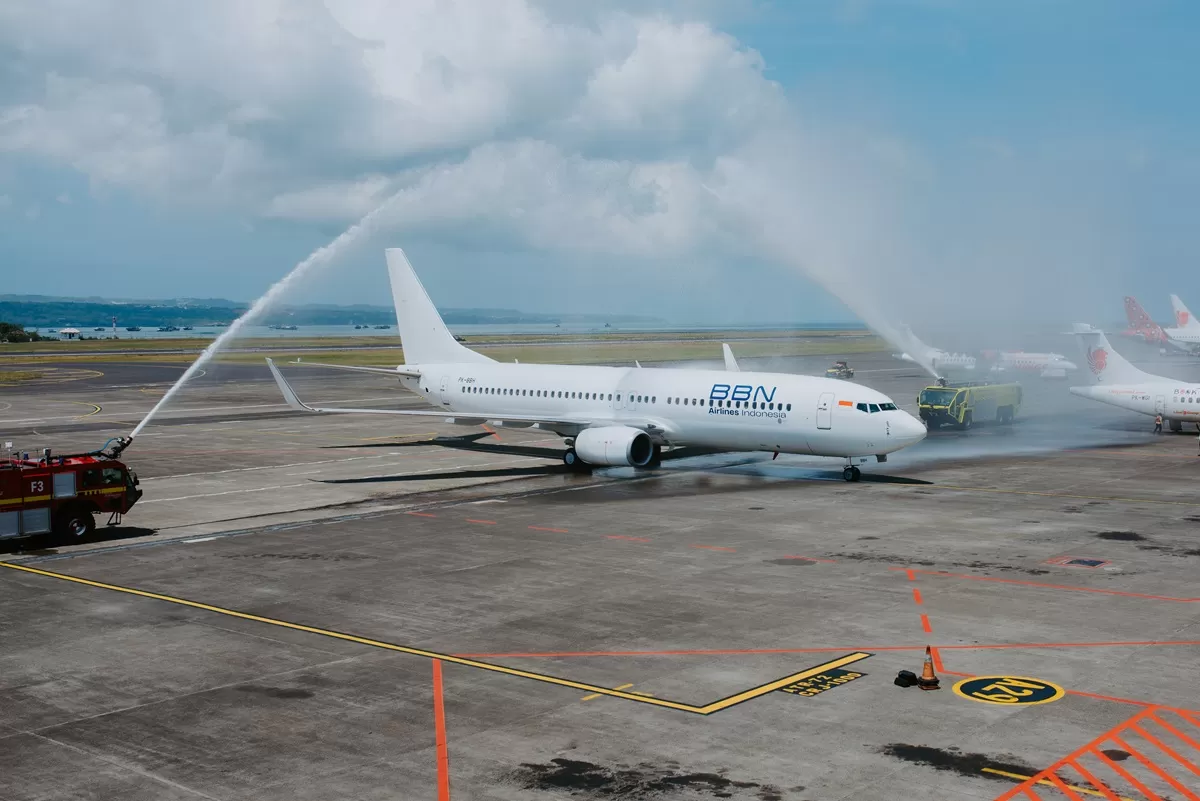Indonesia's aviation industry is experiencing a significant transformation, with the Aircraft, Crew, Maintenance, and Insurance (ACMI) business model emerging as a pivotal component in addressing the sector's evolving needs. This comprehensive analysis explores the role of ACMI in Indonesia's aviation landscape, its benefits, and its potential to meet the increasing demand for air travel.
Understanding the ACMI Business Model
The ACMI model, commonly referred to as "wet leasing," involves an airline providing an aircraft along with its crew, maintenance services, and insurance to another airline or entity. This arrangement allows airlines to:
- Expand Capacity Quickly: Airlines can swiftly increase their fleet size to meet rising demand without the long lead times associated with purchasing new aircraft.
- Reduce Operational Risks: By outsourcing aspects like maintenance and insurance, airlines can focus on core operations while mitigating certain risks.
- Enhance Flexibility: ACMI agreements offer flexibility to adjust capacity based on seasonal fluctuations or unexpected market changes.
The Indonesian Aviation Landscape Post-Pandemic
The COVID-19 pandemic significantly impacted global aviation, and Indonesia was no exception. As the industry rebounds, several challenges have emerged:
- Surge in Air Travel Demand: There has been a notable increase in both domestic and international air travel, leading to capacity constraints.
- Aircraft Shortages: Major manufacturers like Airbus and Boeing are experiencing production backlogs, delaying the delivery of new aircraft to airlines.
- Financial Constraints: Airlines are cautious about large capital expenditures due to the financial strains endured during the pandemic.
ACMI's Role in Addressing Capacity Constraints
In light of these challenges, the ACMI business model presents a viable solution:
- Immediate Capacity Addition: Airlines can lease aircraft under ACMI agreements to quickly augment their fleets, ensuring they meet passenger demand without waiting for new aircraft deliveries.
- Cost Efficiency: By opting for ACMI leases, airlines can avoid the substantial upfront costs associated with purchasing new aircraft, preserving capital and reducing financial risk.
- Operational Continuity: ACMI providers handle maintenance and insurance, allowing airlines to maintain consistent service levels without diverting resources to these areas.
BBN Airlines Indonesia's Strategic Focus on ACMI
A notable example of ACMI's growing prominence in Indonesia is BBN Airlines Indonesia's strategic emphasis on this model. The airline aims to:
- Strengthen the Aviation Ecosystem: By focusing on ACMI services, BBN Airlines Indonesia seeks to enhance operational efficiency and flight capacity within the country's aviation sector.
- Meet Rising Demand: The airline's ACMI offerings are designed to address the increasing demand for air travel, providing flexible and efficient solutions for capacity expansion.
- Support Industry Recovery: Post-pandemic, BBN Airlines Indonesia's ACMI services are positioned to facilitate the recovery and growth of Indonesia's aviation industry.
Global Trends and Local Opportunities
The global ACMI market is experiencing significant growth:
- Market Expansion: The ACMI narrow-body market is projected to grow from US$6 billion in 2024 to approximately US$10 billion by 2030, reflecting a compound annual growth rate of around 9%.
- Regional Potential: In the Asia-Pacific region, countries like Indonesia are identified as potential markets for ACMI services, given the diverse projections for aviation industry development.
Advantages of ACMI for Indonesian Airlines
Indonesian airlines stand to gain multiple benefits from adopting the ACMI model:
- Operational Flexibility: ACMI allows airlines to adjust capacity in response to market demands without committing to long-term investments.
- Risk Mitigation: By outsourcing critical operational components, airlines can reduce exposure to various operational risks.
- Market Competitiveness: Access to ACMI services enables airlines to maintain competitiveness by offering increased flight frequencies and destinations.
Challenges and Considerations
While ACMI offers numerous advantages, airlines must consider potential challenges:
- Cost Implications: Leasing costs can be higher in the short term compared to owning aircraft, necessitating careful financial planning.
- Regulatory Compliance: Ensuring that ACMI operations comply with local aviation regulations and standards is crucial.
- Brand Consistency: Maintaining a consistent brand experience when using leased aircraft and crew requires strategic alignment.
Future Outlook for ACMI in Indonesia
The future of ACMI in Indonesia appears promising:
- Industry Growth: As air travel demand continues to rise, ACMI services will play a critical role in supporting airline capacity and operational efficiency.
- Strategic Partnerships: Collaborations between ACMI providers and Indonesian airlines can lead to innovative solutions that benefit the broader aviation ecosystem.
- Sustainable Expansion: ACMI offers a pathway for sustainable growth, allowing airlines to scale operations responsibly in response to market dynamics.
Conclusion
The ACMI aviation business model is emerging as a vital component in Indonesia's aviation industry, offering flexible and efficient solutions to meet the growing demand for air travel. By embracing ACMI, Indonesian airlines can enhance capacity, mitigate risks, and navigate the post-pandemic landscape effectively. As the industry evolves, ACMI is set to play an integral role in shaping the future of aviation in Indonesia.
Read More






 Friday, 27-02-26
Friday, 27-02-26







